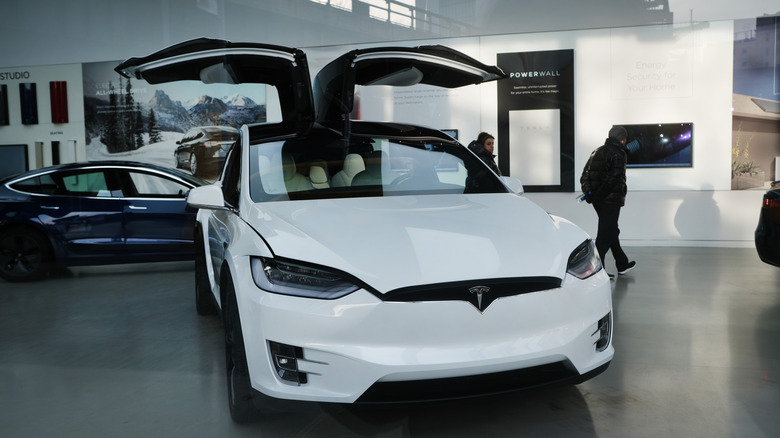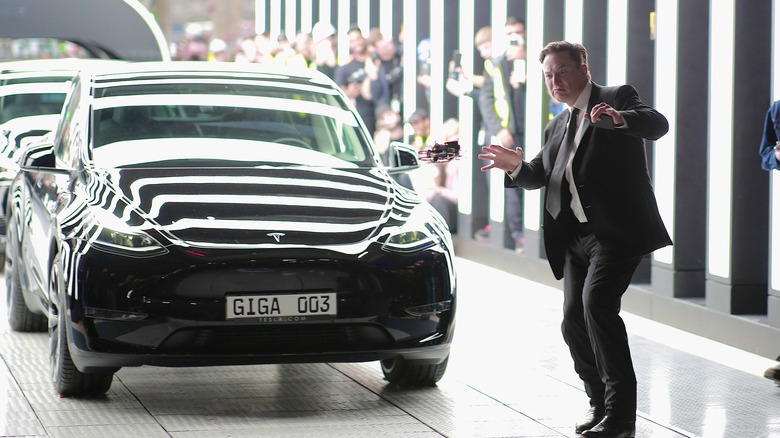Tesla's Full Self-Driving Recall Comes At The Worst Possible Time
Tesla has just issued a recall for 362,758 electric cars, citing risks of a crash due to issues with its Full Self-Driving Beta software. The official NHTSA notice mentions that the software might cause Tesla cars to "act unsafe around intersections," enter "a stop sign-controlled intersection without coming to a complete stop," or go towards an intersection with a yellow signal without due caution. This won't be the first time that Tesla's FSD kit has drawn heat.
However, the latest recall tied to the FSD drama comes at a rather unfortunate time. Tesla recently confirmed that the U.S. Justice Department is investigating the company's Full Self-Driving and Autopilot tricks. The Justice Department launched a similar probe over a year ago, citing misleading advertisement for the self-driving system. Per the NHTSA database, so far, there have been over 270 crash incidents where Tesla's driver assistance system was in use.
The most recent instance was a pile-up involving eight cars that happened in Bay Area. The aforementioned recall, however, is just one of the many problems that are currently haunting Tesla, with CEO Elon Musk being one of them. Tesla's stock price has plunged dramatically in just over a year, the competition in the EV segment is hotter than ever, even Musk is talking bankruptcy, investor trust is reportedly waning, and above all, many Tesla customers are also feeling alienated.
One man, two brands, many problems
Tesla recently cut the prices of its EV, which left a lot of recent buyers in a rather unpleasant mood. In China, displeased buyers went roaring to the automaker's outlets to demand refunds. Meanwhile, Tesla's cars are no longer necessarily the best value proposition in the electric segment, as the likes of Hyundai, Kia, and General Motors keep expanding their EV portfolio to target multiple price points.
Master Plan 3, the path to a fully sustainable energy future for Earth will be presented on March 1.
The future is bright! pic.twitter.com/11ug0LRlbD
— Elon Musk (@elonmusk) February 8, 2023
Tesla still has an edge in terms in performance and efficiency, but maybe only in the US, because the likes of BYD in China claim to be eclipsing Tesla's range and battery efficiency figures. One of the biggest advantages that Tesla currently holds is its vast network of Superchargers, but as the company opens its network up, that competitive edge will also fade. On top of all that, Musk continues to bite morsels out of his Tesla stock pie to fund his $44 billion Twitter acquisition.
With Musk dedicating his time and attention to the social media platforms, some investors have voice concerns that he is abandoning Tesla at the most crucial point. Musk may be winning in court, but the tangible problems for Tesla are all knocking at his doors at the same time. It will be interesting to see whether the promised Master Plan Phase 3, which will be announced on March 1, will solve Tesla's problems.

